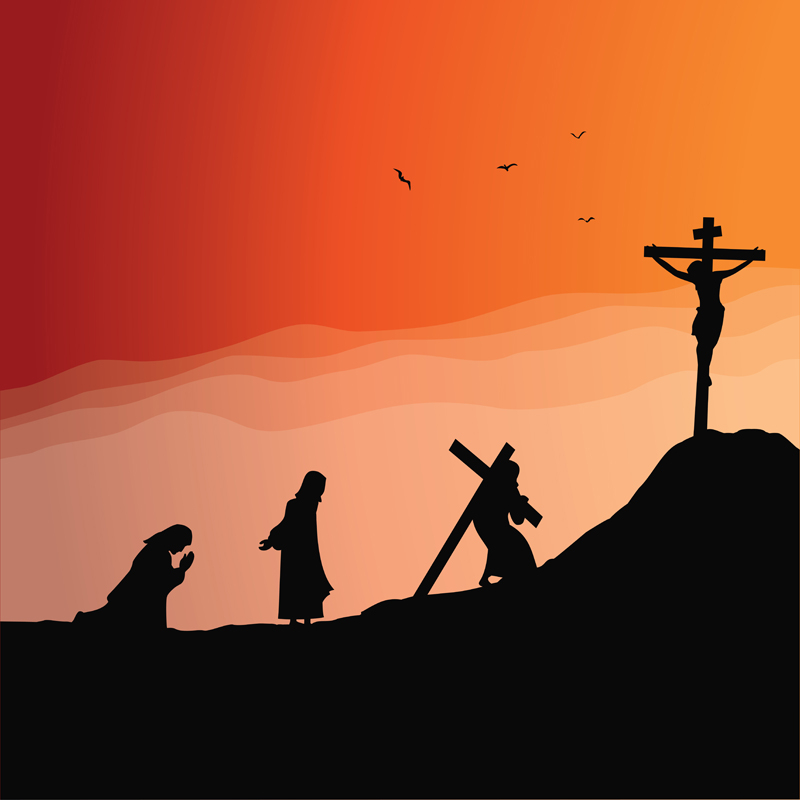For what is Calvary if beyond it is the promise of Easter?
It was Holy Week 2012 when I was diagnosed with stage 2B colon cancer. I cried my eyes out, “Why me? What terrible transgression did I commit to deserve this punishment?” Exhausted, angry and defeated in spirit, another Calvary loomed before me.
Among the countless struggles I had to confront during my younger years was that of faith. I had very intense questions about the existence of a God and the soundness of my religion. I was born and reared to be a devout Catholic. I practiced the Sacraments like a dutiful soldier taking to heart all his assigned tasks. As expected, my religion turned into a routine. In its dreariness, things started to lose their meaning and purpose. I felt very empty.
It was this emptiness that fired my curiosity to seek solace in readings and lecture sit-ins on Buddhism, Islam, Ananda Marga, and other religions and ways of life during my early scholastic years in a university that strongly encouraged the pursuit of human freedom—in practices of faith, most especially. It supported the Marxist dictum that “religion is the opium of the people,” which is often utilized by the “powers that be” to perpetuate oppression and commit injustice. I listened to the propositions of existentialist philosophers, atheists, and agnostics. Since the Bible was reduced to a mere mandatory text imposed by my church-going parents, I was heavily reading and devouring in secret the works of Kierkegaard and Sartre, among others, not to mention the Bhagavad Gita and the Quran in my insatiable search for answers. But despite all these, I was still very empty.

There were many painful pitfalls in my life that made me drift away all the more. Surprisingly, though, never for once was I compelled to experiment with drugs, mysticism, and the occult in my desperation to find some answers. But neither did I attribute this safe and guided direction to an Omnipotent God who kept me away from all harm and evil despite my stubbornness to acknowledge Him. I kept on looking elsewhere and everywhere for that God who could answer all my questions and envelop my soul in peace. But I have forgotten to look inside my heart.
The I Ching by Lao Tzu, a Chinese philosopher, tells us that you first have to be empty in order to be full. It was in the emptiness of my heart that I found the fullness of God. He was right there all along, patiently waiting for me to accept His presence in my life and surrender my whole being to His power and all-encompassing love. In my struggle, it was He who picked me up every time I struggled and fell. In my despair, it was He who comforted me and gave me hope to go on looking. In my weakness, it was He who served as my invisible source of endless strength. Even in my pride, it was His unconditional love and forgiveness that humbled me to my knees. Like the father who was preparing for his prodigal son's return, God openly welcomed me back to the fold.
Odd, but it is when our insides are so bruised and aching that we feel as if we will have to cry a river to get the hurt out that we remember to turn to God.
Odd, but it is when our insides are so bruised and aching that we feel as if we will have to cry a river to get the hurt out that we remember to turn to God. It is only in our nothingness that we realize His fullness. But His grace and mercy are so overwhelming that they permeate every single minute of our lives, whenever and wherever. It is our human pride that hinders us from enjoying a personal relationship with God.
I have stopped looking for miracles in my life ever since I submitted myself to a renewal of faith. I know that I am God's miracle and every day that I live, an effort to be worthy of the gift of life is but a fitting form of gratitude that I can give in return, little as it may seem. What greater God can there be than one who gives us the freedom of will and choice?
The pandemic has badly shaken the firm foundations of our faith. Isolation, despair, disease, death, and inconceivable sorrow have turned us into doubting Thomases. The difficult situations we are facing in our lives test how steadfast we are in holding on to God’s promise. This is not a promise of an immediate rescue from loss, hardship, and suffering but a promise that, regardless of our current situation, He will never leave nor forsake us. We just have to stop doubting and start believing. In times of tribulation and uncertainty, those who believe seek hope and reassurance in His powerful name. In the midst of incomprehensible circumstances, let us be still and know that He is God.
It is always darkest before dawn... but for what is Calvary if beyond it is the promise of a glorious Easter?


